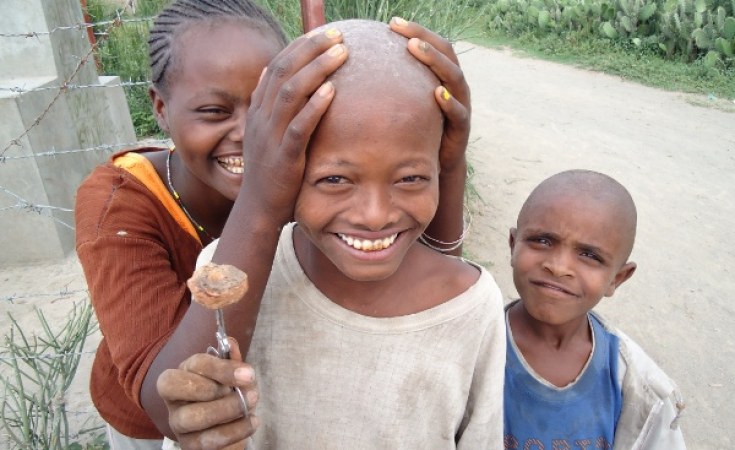A new study assessing World Bank support for programs that target the most vulnerable people shows that social safety nets (SSNs) are achieving their objectives and there is a growing effort in Africa to establish them to help keep the poor from sliding deeper into poverty.
The study, conducted by the Independent Evaluation Group (IEG), said the bank provided U.S.$11.5 billion in lending and advisory services for SSNs in the developing world during the past decade.
Few countries were prepared for the food, fuel and financial shocks that pushed 64 million additional people into extreme poverty by the end of 2010, the study said.
"The food crisis of the last few years was really a wake-up call to many, many countries and to donors and to the bank that social safety nets are critically important," Jennie Litvack, lead economist with IEG and the main author of the study, told AllAfrica.
"Sometimes these are issues that only get the attention of governments and the bank and journalists during a crisis, but actually the real work has to happen between the crises," she said.
"That's when the institution building, the knowledge of where the pockets of poverty exist, and where the monitoring systems can be put in place so that when there is a crisis there can be a quick response."
Litvack said one of the most successful public safety net programs in Africa has been in Ethiopia, where the bank has been lending SSN support since 2005.
The country has moved from making annual food appeals to establishing a program, designed by the government with input from donors, to which the donors all contribute, she said. The primary aim of the program when it began was to set up a safety net to handle predictable shocks, such as droughts.
"The main objective was to... [make] funds available to smooth consumption during the period of the year when households otherwise have to... pull their kids out of school [or] sell their assets" to survive a crisis, Litvack said. "Knowing that these funds were available would be very important for preventing a further drop into poverty."
She said over time the program has evolved to having two main components: one for chronically poor people who have food insecurity but can work, and one for those who are unable to work, such as the elderly, who receive cash transfers.
Donors coordinate closely with the government, as opposed to trying to coordinate with programs scattered throughout the country, which is the case in some nations.
Nigeria's interest in SSNs has been gradually building, and in the past few years the bank has been piloting some new programs there. There are a few conditional cash transfer programs where households are encouraged to send children to school and are provided cash as an incentive to do so.
Litvack said the programs work when there is government commitment to them.
"There's certainly a host of political economy issues associated with social safety nets because the programs can be used to generate support by politicians. That's an issue anywhere in the world," she said.
"However, the experience is that there are a number of elements that are actually very positive for governance. For example, developing all the data systems to be able to allocate benefits in a very transparent way has been found in several countries to be very positive for local governance," Litvack said.
The IEG reports directly to the World Bank Group boards of executive directors. Its studies are carried out independently of the management.
Visit the Independent Evaluation Group site for more information.


